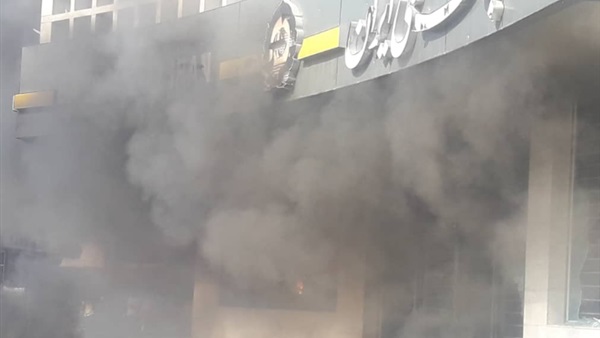Iranian protesters set fire to the Central Bank in Behbahan

Iranian protesters set fire to the Central Bank of Iran
in the city of Behbahan, Khuzestan Province, in demonstrations against the
government’s decision to ration hike the price of petrol.
A surprise decision to ration and raise fuel prices
by 50% has led to long queues at gas pumps and protests around the country.
President Rouhani argues the move is for the good of the people.
Demonstrations broke out around Iran Friday night
after the government raised the price of fuel by at least 50%, the country's
state news agency reports.
In the city of Sirjan in central Iran, demonstrators
tried to set a fuel warehouse on fire in protests that police described as
"severe."
The semi-official news agency INSA reported that one
civilian was killed and several others injured.
Acting governor Mohammad Mahmoudabadi said some
people had exploited the "calm gathering" and had destroyed public
property and damaged fuel stations. He added it was unclear whether the victim
had been shot dead by security forces who were "trying to bring back calm
to the city."
Protesters also gathered in a dozen other cities.
Some crowds attempted to block traffic. State media reported that protests had
ended by midnight.
Authorities raised fuel prices and instituted
rationing measures without warning earlier in the day.
The government limited fuel consumption to 60 liters
per vehicle per month, down from a prior limit of 250 liters. Prices have
spiked over 50% to 15,000 rials (€0.12, $0.13). Every liter above 60 is subject
to a penalty cost of 60,000 rials.
The move left drivers waiting hours in lines at gas
pumps. Many people said they were shocked when they went to refuel their
vehicles. Police were deployed near gas stations to keep order.
Earmarked for subsidies
Iranian President Hassan Rouhani told advisors that
the move was intended to put money in its citizens' pockets and that the
government has earmarked all funds to be used on subsidies for poor families.
"No one should imagine that the government has
done this because it is economically struggling; not at all, not a rial of this
will go to the treasury," Rouhani said, state media reports.
The economy has suffered under US-imposed sanctions
in place since 2018. Inflation is at 40% and the economy is expected to
contract 9% this year.
Fuel in Iran is heavily subsidized, costing 10,000
rials (€0.08, $0.09, approximately) prior to the price hike. Rouhani argues
that raising prices is a natural move considering the current conditions. The
country's 80 million citizens currently consume about 90 million liters of
cheap oil a day.
"Increasing petrol prices is to the people's
benefit and also to help the society's strata under [economic] pressure,"
he said.
The fuel-rationing measures should bring in 300
trillion rials ($2.55 billion) annually, head of the country's Planning and
Budget Organisation Mohammad Bagher Nobakht said on state television, adding
that payments will start within the next 10 days.
They will range from 550,000 rials ($4.68) for
couples to just over 2 million rials ($17.46) for families of five or more.
Large scale protests are sweeping across #Iran after the regime hiked up fuel prices by at least 50%. People are obviously fuming. This fuel hike has triggered anti-government clashes all over the country. Here a bank was set on fire in Behbahan. #بنزین
— Jake Hanrahan (@Jake_Hanrahan) November 16, 2019
(Via @ManotoNews) pic.twitter.com/CzIK0sdeof





